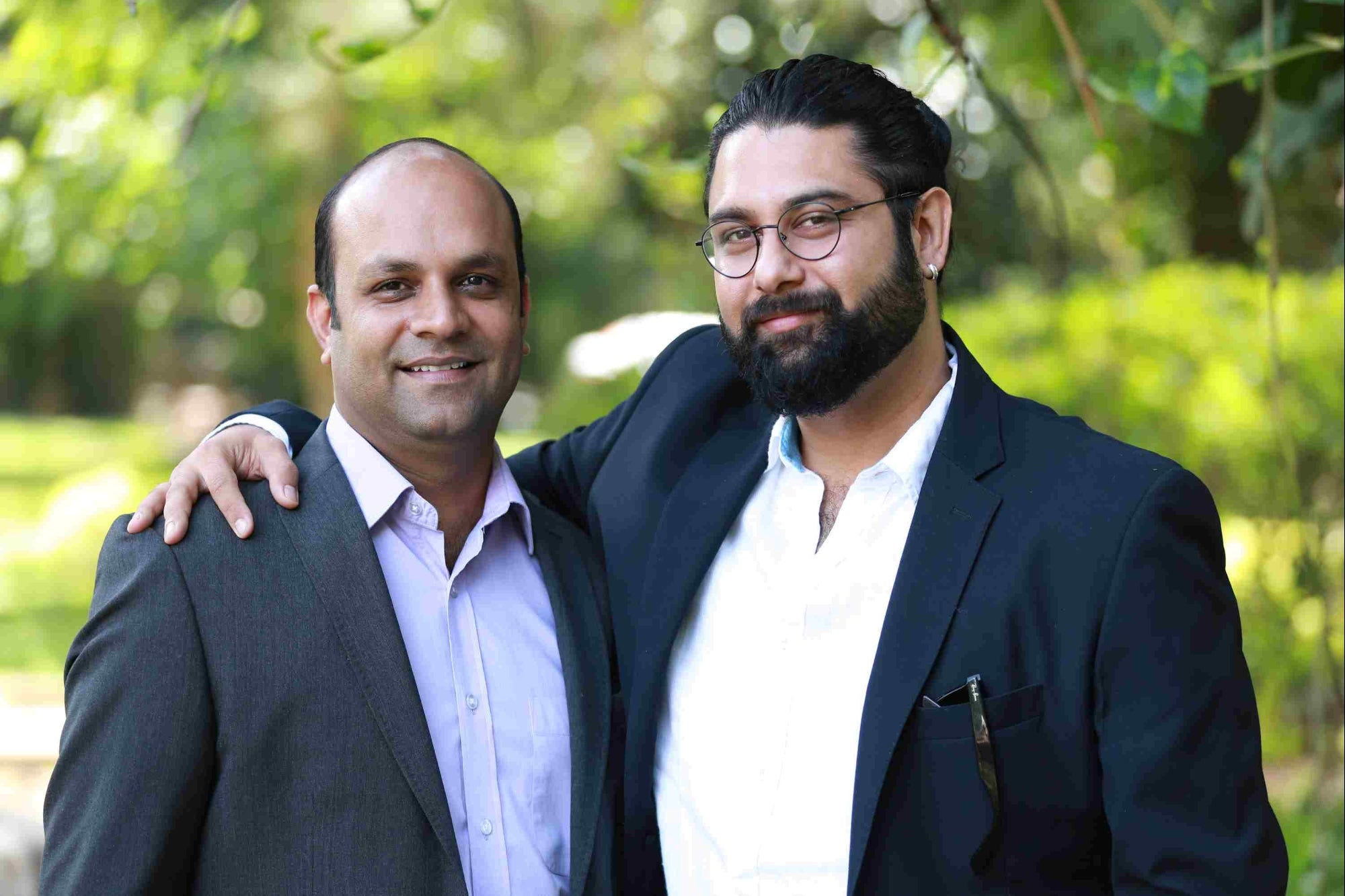"The Value Licious Has Created For Stakeholders Is Directly Reflected in Its Valuation" Licious Co-founders Vivek Gupta and Abhay Hanjura on achieving the unicorn milestone, early mistakes and the road ahead
By S Shanthi
Opinions expressed by Entrepreneur contributors are their own.
You're reading Entrepreneur India, an international franchise of Entrepreneur Media.

"An unparalleled meaty experience to Indians,' that is the motto of Licious, India's first D2C unicorn. "While unicorn status is an important achievement, the biggest game-changer when it comes to altering perception, has been our consistent growth and commitment to quality. We have worked very hard over the last six years to convert any existent skepticism to confidence," Vivek Gupta, co-founder, Licious told Entrepreneur India.
Licious was launched in 2015 when Gupta and his co-founder Abhay Hanjura saw an immense opportunity in the animal protein category, which was hitherto untapped in the Indian market. However, they also knew that there were mammoth challenges to be addressed – right from lack of infrastructure and quality markers to skilled workforce. "Our initial research showed that no one was actually listening to what customers wanted. In many cases, the customers themselves were unaware about the high-quality animal protein products that the industry could procure and produce," said Hanjura.
Looking back, the co-founders feel it is not a moment or one decision that brought them to this milestone. Instead, it has been the consistent efforts. "The value that we have created for our stakeholder ecosystem is directly reflected in the valuation of the company," said Gupta.
Licious adopted a bottom-up approach and aimed at challenging the status quo. That, Gupta and Hanjura believe, paved the way for growth and innovation over the last six years. "We weren't really chasing the billion-dollar valuation goal," said Gupta.
The Journey To The Unicorn Club
Before launching Licious, Hanjura approached Gupta, who was working with Helion ventures back then, to explore a business idea in the nascent fresh meat and seafood delivery space in India. They met for lunch at a restaurant to discuss the idea and were subjected to some really bad quality chicken.
Gupta remarked then, "If we have to build Licious we will have to put life in this dead chicken!" That was the moment they realized what they wanted to achieve through Licious. They wanted to change the way Indians experience meat. "Although 73 per cent of Indians eat meat and seafood, the industry has been highly unorganized, with over 95 per cent of the market being unbranded. Conventionally, meat purchasing in India was synonymous with unhygienic local markets and an unpleasant buying experience," said Gupta.
The mission statement for the startup was thus simple: We won't sell what we won't eat ourselves!
It is this simple credo that drives the company even today, the co-founders tell us.
How Early Mistakes Helped Licious Grow
As a category-first and digitally native brand, innovation was pertinent to Licious. This meant mistakes were inevitable. "We embrace them as an essential part of learning and growth," said Hanjura.
The co-founders believe that their early missteps have been valuable in helping them solve prevailing customer pain points of quality, hygiene, freshness and convenience in a sustainable manner. "Controlling and operating a proprietary supply chain from source to delivery – farm to fork – is integral to the Licious promise of high quality, safe, hygienic meat and seafood. We use technology solutions to trace the whole inventory, from the time it is sourced from the suppliers till the time it reaches the customer," said Gupta.
One important learning from the mistakes was that as a D2C startup, in order to spark customer delight, Licious should not only focus on products but also on service. That is why from the delivery staff to meat technicians, all employees are on Licious' payroll. Currently, Licious has a workforce of 3500+ and claims to be the first Indian start-up to allocate Employee Stock Ownership Plan (ESOP) to blue-collared employees, along with the corporate workforce.
Where It Stands Today And Path Ahead
Licious today sells more than 300 SKUs of fresh meat, seafood, and eggs – offering a 90–120-minute delivery – under three categories including raw and fresh products, which are customized on the basis of geography and ethnicity to suit consumer preference, ready-to-cook products and ready-to-eat products. The startup's USP lies in its claims that none of its products are frozen; they are all fresh and devoid of antibiotics, chemicals, artificial preservatives, color and flavoring. "We are truly innovative, and we solve an everyday challenge for consumers. We have championed the category transformation and set new benchmarks for now and the future," said Hanjura.
Licious has a proprietary cold chain processing facility managed by doctors and meat scientists, first-in-market technology like vacuum packing and modified atmosphere packaging to maintain the freshness of short shelf-life products, and IoT-powered refrigeration technology across all stages of the cold chain.
Licious has a current revenue run-rate of INR 1,000 crore. "Licious has been able to stay ahead of the curve, essentially, because we have a deep understanding of what is happening in the ecosystem and mold our solutions accordingly to meet the ever-evolving consumer needs and preferences," said Gupta.
The pandemic came as a blessing in disguise for the startup. Within six months of the lockdown, it clocked a staggering INR 600 crore in revenue, a jump of over 300 per cent over the previous year's top line.
Licious' co-founders believe this growth will surely be long-term.
The company currently operates in 14 Indian cities, viz, Bengaluru, Hyderabad, NCR, Chandigarh, Mumbai, Pune, Chennai, Jaipur, Coimbatore, Kochi, Puducherry, Vizag, Vijayawada and Kolkata and is looking to expand into new tier I and tier II markets. Global expansion is also on the cards. Additionally, as things look normal again, the company plans to strengthen its offline play.













